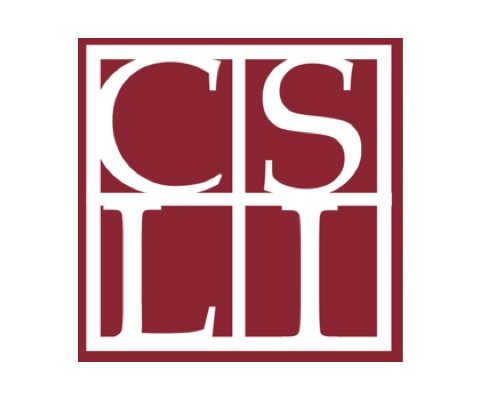Back to series


Questions and Answers: Who Is Jesus? (And Why Does It Matter?)
Learn more in our Dawn Treader Magazine
 Agnes: Are you going to be at the fun run Sunday morning, Polly?
Agnes: Are you going to be at the fun run Sunday morning, Polly?
Polly: No, I’ll be singing in my church choir then.
Agnes: Oh. What kind of church do you go to?
Pol: Well, it’s just really a Christian church. We don’t have some special denominational identity; any follower of Jesus is welcome there.
Agnes: So that’s the most important thing at your church, Polly? Jesus?
Pol: He’s the most important Person at any true church, or gathering of believers. That’s what the Christian faith is all about: Jesus!
Agnes: But aren’t other things important to Christians as well — like doing the right thing and that God created the world and loves us all?
Pol: Yes — but everything a Christian believes is tied up in what he or she believes about Jesus Christ, “the chief cornerstone” (Ephesians 2:20). “For in Him dwells all the fullness of the Godhead bodily” (Colossians 2:9).
Agnes: What does that mean?
Pol: It means that Jesus is God — He did everything that we understand as having been done by God, from the Creation of the world and before: “In the beginning was the Word, and the Word was with God, and the Word was God. The same was in the beginning with God” (John 1:1-2) — when “In the beginning God created the heaven and the earth” (Genesis 1:1) — “And the Word became flesh, and came to live among us” (John 1:14). And we can only understand Who God is by how He revealed Himself by  coming to earth as a human being.
coming to earth as a human being.
Agnes: But what about those who follow other religions and ways of knowing God? Hasn’t God also revealed himself to them, just in a different way?
Pol: That sounds like another version of the old argument: Don’t all religions lead to God? However, different religions claim radically opposing ideas as the truth, so they can’t possibly be going the same way. Opposites are not different versions of the same thing; only one can be right and the other wrong.
Agnes: But I do think all religions share a similar foundation: of right thinking and virtuous behavior and love of neighbor.
Pol: I’m not sure that all religions necessarily agree even on those points; perhaps some do. But even if Christianity does share some principles with those other religions, it does not — cannot — share the foundation with any of them.
Agnes: How so?
 Pol: Because the Christian faith is not founded on principles as such. It’s founded on a relationship with a Person, Jesus Christ..
Pol: Because the Christian faith is not founded on principles as such. It’s founded on a relationship with a Person, Jesus Christ..
Agnes: We keep on coming back to Jesus!
Pol: Well, you can’t avoid it if we want to keep on talking about my faith. My faith really is about my relationship with Jesus Christ. There’s a reason it’s called Christianity, you know. Christ is the basis of our faith.
Agnes: Yes, but what’s in a name?
Pol: No, Names can have great power, and can say a great deal about the person named. Jesus was born to have the names He is known by: “And she shall bring forth a son, and you shall call His name Jesus…and they shall call His name Emmanuel, which is interpreted, God with us” (Matthew 1:21-23). He is the “Name which is above every name”
(Philippians 2:9).
Agnes: But I still don’t understand why this is so important. You seem to be trying to say that without Jesus, no human attempts to be religious and godly will ever succeed.
Pol: That’s exactly what I am trying to say! “There is none that does good, no, not one” (Psalm 53:3) and “there is none good but one, that is, God” (Matthew 19:17). God lives in an atmosphere of perfect goodness — holiness and righteousness and justice and mercy and love. He loves all His creation, and wants us to share in His holy life, as He says: “Be ye holy, for I am holy” (1 Peter 1:16). But we can’t, not on our own, for if all holiness comes from God and is part of His Nature, it follows by default that unless we are connected to and able to partake of that Nature, we cannot be holy ourselves. “If you want joy, power, peace, eternal life, you must get close to, or even into, the thing that has them… Once a man is united to God, how could he not live forever? Once a man is separated from God, what can he do but wither and die?”2
So, to bring us back to Him, to reunite humanity with God, there had to be a perfect “first example” of God and man united, which is why Jesus is both perfect God and perfect man, “that He might be the firstborn among many brothers and sisters” (Romans 8:29). “And here comes the catch. Only a bad person needs to repent: only a good person can repent…The only person who could do it perfectly would be a perfect person —s and he would not need it…we now need God’s help in order to do something which God, in His own nature, never does at all…But supposing God became a man — suppose our human nature which can suffer and die was amalgamated with God’s nature in one person — then that person could help us… To what will you look for help if you will not look to that which is stronger than yourself?”3
Without Jesus, church — and rules for good living and society and even just living in general — would all be just a big waste of time. There’d be no point to any of it.
Agnes: That does make Jesus sound like a pretty important Person to know, then, if you want to get somewhere in life!
Pol: Eternal life, at that.
Ask your children: What do you think about Polly’s answers to Agnes’s questions? Do you have any other questions of your own that this dialogue has brought up for you? Challenge them to think up more responses they could give, if someone asked them a question similar to the ones Agnes asked.
Notes.
2 Ibid. p. 176.
3 Ibid. pp. 57-59.
C.S. Lewis Institute
Author
C.S. Lewis Institute, in the legacy of C.S. Lewis, works to develop wholehearted disciples of Jesus Christ who will articulate, defend, share, and live their faith in personal and public life. Founded in 1976 by Dr. James Houston and James R. Hiskey, the Institute provides leading teachers who address important issues of the day from the perspective of Biblical orthodoxy, while also providing discipleship for individuals in small groups.

 COPYRIGHT: This publication is published by C.S. Lewis Institute; 8001 Braddock Road, Suite 301; Springfield, VA 22151. Portions of the publication may be reproduced for noncommercial, local church or ministry use without prior permission. Electronic copies of the PDF files may be duplicated and transmitted via e-mail for personal and church use. Articles may not be modified without prior written permission of the Institute. For questions, contact the Institute: 703.914.5602 or email us.
COPYRIGHT: This publication is published by C.S. Lewis Institute; 8001 Braddock Road, Suite 301; Springfield, VA 22151. Portions of the publication may be reproduced for noncommercial, local church or ministry use without prior permission. Electronic copies of the PDF files may be duplicated and transmitted via e-mail for personal and church use. Articles may not be modified without prior written permission of the Institute. For questions, contact the Institute: 703.914.5602 or email us.
Speakers

C.S. Lewis Institute
Author
Team Members
C.S. Lewis Institute
Author
C.S. Lewis Institute, in the legacy of C.S. Lewis, works to develop wholehearted disciples of Jesus Christ who will articulate, defend, share, and live their faith in personal and public life. Founded in 1976 by Dr. James Houston and James R. Hiskey, the Institute provides leading teachers who address important issues of the day from the perspective of Biblical orthodoxy, while also providing discipleship for individuals in small groups.


